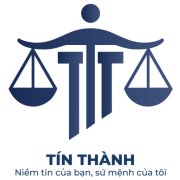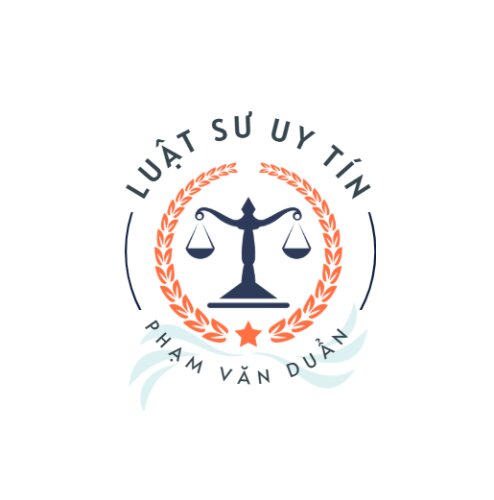Best Class Action Lawyers in Vietnam
Share your needs with us, get contacted by law firms.
Free. Takes 2 min.
Or refine your search by selecting a city:
List of the best lawyers in Vietnam
About Class Action Law in Vietnam
Class Action in Vietnam is still relatively new and developing. Unlike some Western countries where class actions are common in the legal system, Vietnam is in the initial stages of incorporating mechanisms to allow for collective redress. While Vietnam's legal framework has provisions for individuals to pursue collective claims, these are not class actions in the traditional sense, as seen in jurisdictions like the United States. Normally, multiple individual claims are grouped under specific procedural rules, and these are brought before the people's courts. This process allows a group of individuals, usually with similar grievances, to address issues against a common defendant.
Why You May Need a Lawyer
There are several scenarios where individuals in Vietnam might require legal assistance in pursuing a class action:
- Product Liability: If consumers collectively face damages from a defective product, they may seek compensation through coordinated claims.
- Environmental Issues: Communities affected by pollution caused by corporations may need to file collective claims to address these issues effectively.
- Employment Disputes: Workers with similar grievances against an employer, such as wage theft or unfair labor practices, might need to approach this collectively.
- Consumer Protection: If businesses engage in deceptive practices affecting numerous customers, these customers might choose to file a coordinated claim.
A lawyer can help navigate the complexities of filing such claims and ensure that procedural requirements are met.
Local Laws Overview
Vietnam's legal system is based on a civil law framework, and while it allows for collective actions, these are largely based on administrative directives and procedural laws. Relevant laws include the Civil Procedure Code and the Law on Protection of Consumers' Rights. These laws provide the foundation for individuals seeking collective redress:
- Civil Procedure Code: Outlines the procedural aspects of filing a lawsuit, including how multiple claims can be consolidated.
- Law on Protection of Consumers' Rights: Offers a basis for consumer groups to protect and enforce their rights against unfair practices.
- Environmental Protection Law: Allows individuals to take collective action against polluters under certain conditions.
Despite these frameworks, the lack of specific class action legislation means that legal outcomes can be uncertain, making expert legal advice crucial.
Frequently Asked Questions
What is the current status of class action litigation in Vietnam?
There is no formal class action system similar to that in Western countries, but Vietnam allows for group claims under certain legal frameworks.
Is it necessary to hire a lawyer for a class action in Vietnam?
Yes, due to the complexity and evolving nature of the law, hiring a lawyer is recommended to ensure effective legal representation.
Can consumers file collective claims against businesses?
Yes, under the Law on Protection of Consumers' Rights, consumers can file collective claims against businesses for grievances such as defective products or misleading advertisements.
What role do courts play in class actions?
Courts in Vietnam handle the procedural aspects of group claims, ensuring that they meet the required legal standards for consideration.
Are there specific industries where class actions are more common?
Traditionally impacting industries include manufacturing for product liability, environmental sectors, and occasionally the employment sector.
How long does it typically take to resolve a group claim?
The duration varies, but generally, it can take several months to years, depending on case complexity and court backlog.
What are the typical outcomes of a successful group claim?
Legal resolutions may involve monetary compensation, corrective actions by the defendant, or policy changes.
How can someone start a collective claim process?
Begin by consulting with a legal professional who specializes in collective claims to assess the merit and procedural requirements of your claim.
Is it possible to join an existing claim after it has started?
This depends on the procedural rules governing the specific case; consulting a lawyer can provide clarity based on individual circumstances.
What are the costs associated with pursuing a class action?
Costs vary based on legal fees, court charges, and the complexity of the claim, often necessitating financial planning or collective funding from participants.
Additional Resources
The following resources and organizations may provide useful information and assistance:
- Vietnam Bar Federation: Offers legal resources and can help in finding specialized lawyers for class actions.
- Ministry of Justice: Provides information on Vietnamese laws and regulations, including those related to consumer protection.
- Vietnam Environmental Administration: May help with cases involving environmental claims.
Next Steps
If you are considering a class action or need legal assistance in Vietnam, follow these steps:
- Gather all relevant documents and information pertinent to your claim.
- Consult with a legal professional who has experience in collective claims in Vietnam.
- Understand the costs, timelines, and potential outcomes of your case.
- Consider coordinating with other affected parties to strengthen your position.
- Follow your lawyer’s advice on how to proceed with filing the claim or joining an existing action.
Taking these steps will provide a structured approach and increase the likelihood of a favorable outcome.
Lawzana helps you find the best lawyers and law firms in Vietnam through a curated and pre-screened list of qualified legal professionals. Our platform offers rankings and detailed profiles of attorneys and law firms, allowing you to compare based on practice areas, including Class Action, experience, and client feedback.
Each profile includes a description of the firm's areas of practice, client reviews, team members and partners, year of establishment, spoken languages, office locations, contact information, social media presence, and any published articles or resources. Most firms on our platform speak English and are experienced in both local and international legal matters.
Get a quote from top-rated law firms in Vietnam — quickly, securely, and without unnecessary hassle.
Disclaimer:
The information provided on this page is for general informational purposes only and does not constitute legal advice. While we strive to ensure the accuracy and relevance of the content, legal information may change over time, and interpretations of the law can vary. You should always consult with a qualified legal professional for advice specific to your situation.
We disclaim all liability for actions taken or not taken based on the content of this page. If you believe any information is incorrect or outdated, please contact us, and we will review and update it where appropriate.
Browse class action law firms by city in Vietnam
Refine your search by selecting a city.















